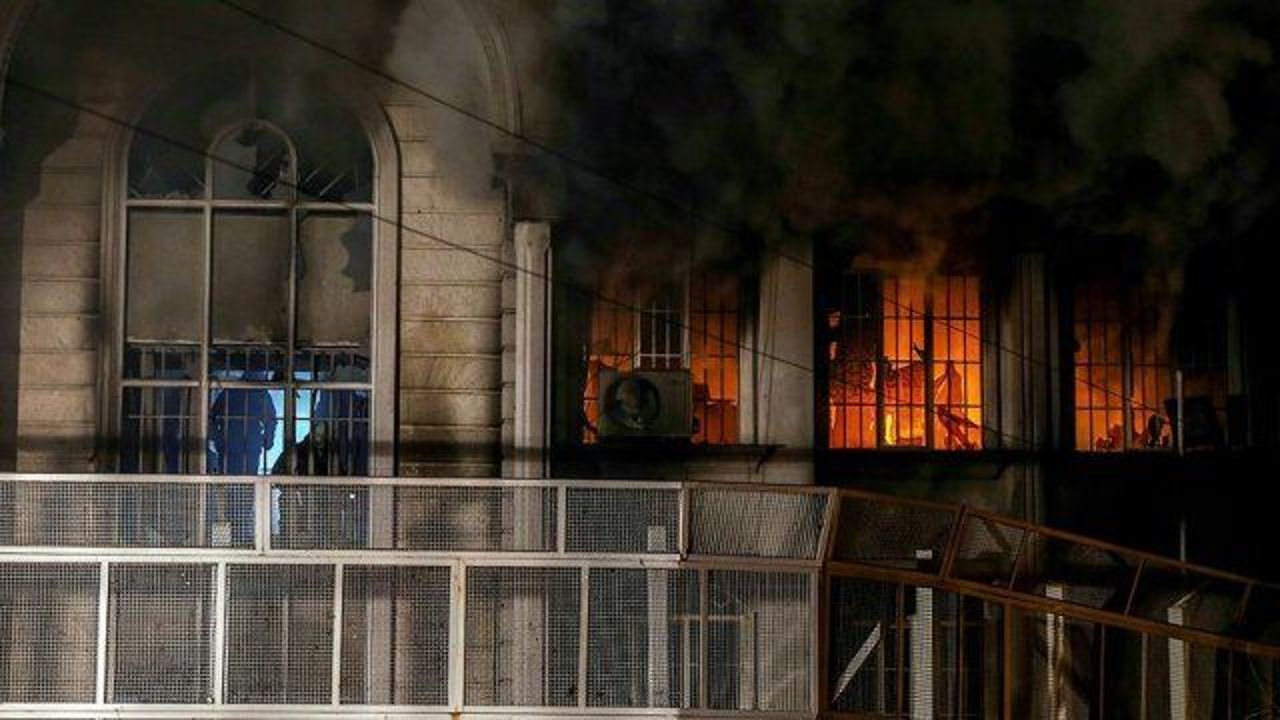Foreign embassies - the number one target for the disaffected in Tehran
There are many episodes in the history of Iran associated with the seizure of foreign embassies located in the territory of the country.

Let us turn to history, in 1829 an angry mob in Tehran attacked the Russian embassy and slaughtered the entire staff, including the ambassador Griboyedov. In November 1979, the Iranians seized the American embassy in Tehran; hostage saga lasted for long 444 days. In November 2011, the "revolutionary students" attacked the embassy and the residence of the British ambassador to Iran. Then in December 2011 Britain broke off diplomatic relations with Iran.
January 2, it became known of the attacks on the Saudi embassy in Tehran and Consulate in Mashhad. The buildings were severely damaged. Even more damage was caused to stability in the region.
What conclusion can be drawn based on all of this? Why foreign diplomatic missions in Iran are being attacked from time to time?
I suppose that, on the one hand this is due to the lack of political culture in certain circles of the Iranian elite, on the other hand the same elite realize the weakness and inefficiency of their available tools of influence on a number of issues. From this is born the desire to take revenge on embassies.
Iran is a country in which the media, various organizations and activists are under strict state control. The possibility of spontaneous actions against foreign embassies is excluded. It means, the green light to ransack the Saudi Embassy has been given from the top. For Western experts, it may seem absurd such actions of the Iranian authorities that lead to further deterioration of an already corrupted image of Iran. However, such events should be responded based on the intra-Iranian and regional context. There is tension between Iran and Saudi Arabia since the Shah`s era. Therefore, it is not so difficult to increase the degree of tension between the two antagonists.
This time the cause of the outbreak of anti Saudi anger in Iran was an execution of 47 individuals involved in terrorism and subversion, according to the version of the Saudi authorities. Among those executed was a Shiite cleric (and, according to Riyadh, an Iranian agent, inciting the Shiites to revolt) Nimr al-Nimr. Iran is far ahead of Saudi Arabia by the number of executions, conceding except that to China in the number of executions. Public executions are common practice in Iran. As for al-Nimr and Iranian protests, it is interesting what Iran would have done with the nationalist who, for example, would call for greater freedom of South Azerbaijan? This issue for the Iranian authorities is as sensitive as the Shiites for Riyadh. Naturally in Iran such a person would have been arrested, accused of heresy, treason, espionage (for example, working for Israel) and executed; swift actions with no time to waste. My task is not to justify the Saudis and not to put Iran in a bad light. I just want to bring to the reader the theatricality of the whole issue.
Hotheads attacking the Saudi embassy are just pawns in the big game of the Iranian mullahs, the same pawns, like their older brothers in November 1979 taking over of the US embassy and pawns who attacked the British embassy in 2011. It is foolish and naive to believe that Iranian demonstrators acted on call of their heart. Although I do not rule out that some of them were completely random naive simpletons. But the backbone consisted of people far different from them.
After the incident with the embassy, the Iranian ambassador was summoned to the Foreign Ministry of Saudi Arabia, was handed a protest note and reported that he has 24 hours to leave the country. Also the authorities of the Kingdom started evacuating embassy staff from Iran. The next day Bahrain and Sudan broke off diplomatic relations with Iran. UAE handed a protest note to Iranian ambassador and condemned the attack on the Saudi Embassy, also GCC countries supported the Saudi position, and Jordan expressed its protest in sharp tones. That is, Tehran, adhering to its old tactics of revenging on the embassies antagonized almost all Arab countries.
Al-Nimr is just a figure, the replacement of which will be certainly found by Iranians. But whether the degree of tension in the region will subside, is a complicated question.
Ali Hajizade, political analyst, head of the project “The Great Middle East”







